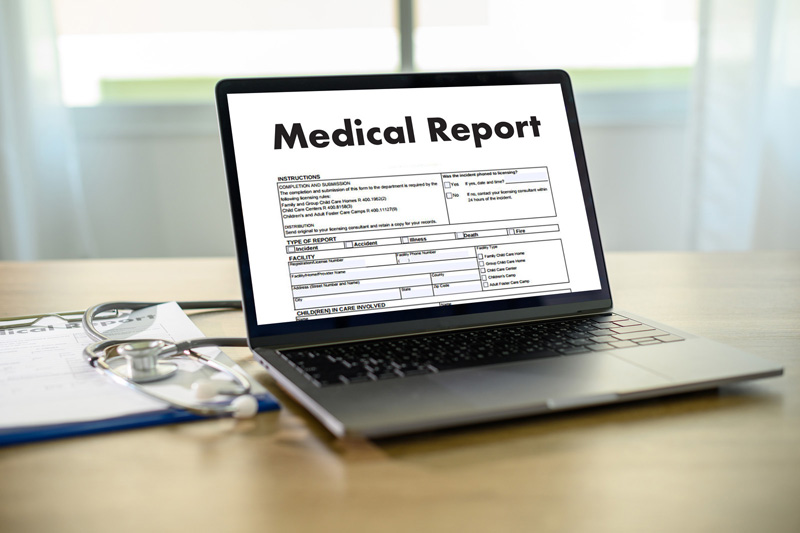In a law firm, the responsibility of collecting all medical records relevant to personal injury, product liability, medical malpractice and such other cases is entrusted to the paralegals in a law firm. The strenuous task of retrieving the medical records from various sources can be made easy with the support of medical record retrieval companies. The data resident in the medical records – electronic, paper-based, and handwritten medical records – is very valuable in medical litigation. Paralegals need to sharpen their skills in identifying the relevant documents and creating a methodical approach to organizing these medical records.
Retrieving the Medical Records
So, how to find out which medical records are needed from medical record custodians? For this, the first thing to do is identify all the healthcare providers the client has visited. Details needed include names, phone numbers, and addresses of the providers, dates of visit, complaint, treatments, tests ordered, medications prescribed, and the result of the treatment. These details are important because they help decide which records are important and which aren’t. By avoiding ordering unnecessary medical records, you can save the law firm a lot of money. However, cost considerations shouldn’t prevent you from ordering records that could become useful at some stage or other of the case. So, this is an area that you need to tread very carefully so that you don’t end up neglecting records that may contain relevant patient data.
How to Request
Calling the providers personally can help speed up the record collection process. Moreover, you get to know which records are not available with a specific provider. The earlier you know the location of the records, the earlier you can start organizing them. Medical records may be available directly from the respective physicians’ offices, but sometimes physicians’ offices may be owned by a hospital or other healthcare system. In such cases, you will have to make the medical record request at a central records location of the organization with which the physician is affiliated.
HIPAA-compliant Medical Record Release
Medical records have to be requested along with a detailed form completed by the injured person/patient, authorizing the healthcare provider to release the information to you. Taking HIPAA requirements into consideration, many providers are worried about what, when and how sensitive medical details can be released by them. Hospitals and such other large organizations may have their own authorization forms to request the records, and this form must be carefully evaluated with the help of a lawyer. The form should provide access to all the relevant records you need for the case. When taking on a client, you need to have them sign authorization forms. It is best that you have sufficient or even more signed forms than are necessary to be prepared for any additional providers from whom you may have to request records at some point or other.
Sometimes, the medical records to be obtained may be those of minors or incompetent clients. In such cases, they cannot give legal consent for medical record release and authorization must be obtained from the parent or legal guardian. Also, specific state laws may be there regarding the entity specifically authorized to sign for such clients.
Place the Medical Record Request as Early as Possible
Medical record retrieval is a lengthy process and therefore placing the request early is important. Documents such as hospital and treatment bills, prescriptions, and pharmacy bills have to be obtained because these are required to calculate the damages in the particular case. Time of placing the request is crucial because different providers may take different times to provide the medical records.
Medical Record Organization – How to Go about It
When all the medical records are received in the office, the next important task is organizing them effectively. The records have to be organized and managed in such a way that they are useful for anyone working on the case. How long it takes to organize the records would depend on whether the medical records are typed or handwritten, how they are provided, as well as the program used to create the records. The records may be paper-based and scanned or generated by an EMR system.
- When organizing the medical records, ensure a consistent format. Information can be easily located if there is consistency, i.e. place the same sections of the medical record in the same sequence each time.
- Organize the paper records in a spacious area where they can be spread out, for instance, on a table. Ensure that you are dealing with only one client’s records at a time on your work surface. This is to avoid mixing up the records of different clients and entering the wrong information in the wrong chart.
- When organizing the records, include subsections that are tabbed and marked, such as Progress Notes, Lab Notes, Radiographic, and so on. Make an index of all major sections and their sub-sections.
- Determine whether the medical records received are complete. Carefully compare the medical records to the medical history the client has provided. It is important to be aware that even if the records come along with a notarized affidavit, the affidavit is only proof that the records are authentic copies, not that they are a complete set.
- Bates stamp the medical records, either manually or using a software program for numbering the pages. This process is helpful for attorneys and expert witnesses to refer to a specific page number in the medical record.
Retrieving medical records and medical record organization are daunting tasks, but these are of immense significance because medical records hold information vital to many personal injury, medical malpractice, product liability and other cases. A systematic approach in handling the medical records is the prime requirement to make these processes error-free and efficient.
Read our blog on Paralegals, Here Are Some Tips For Effective Case Management




